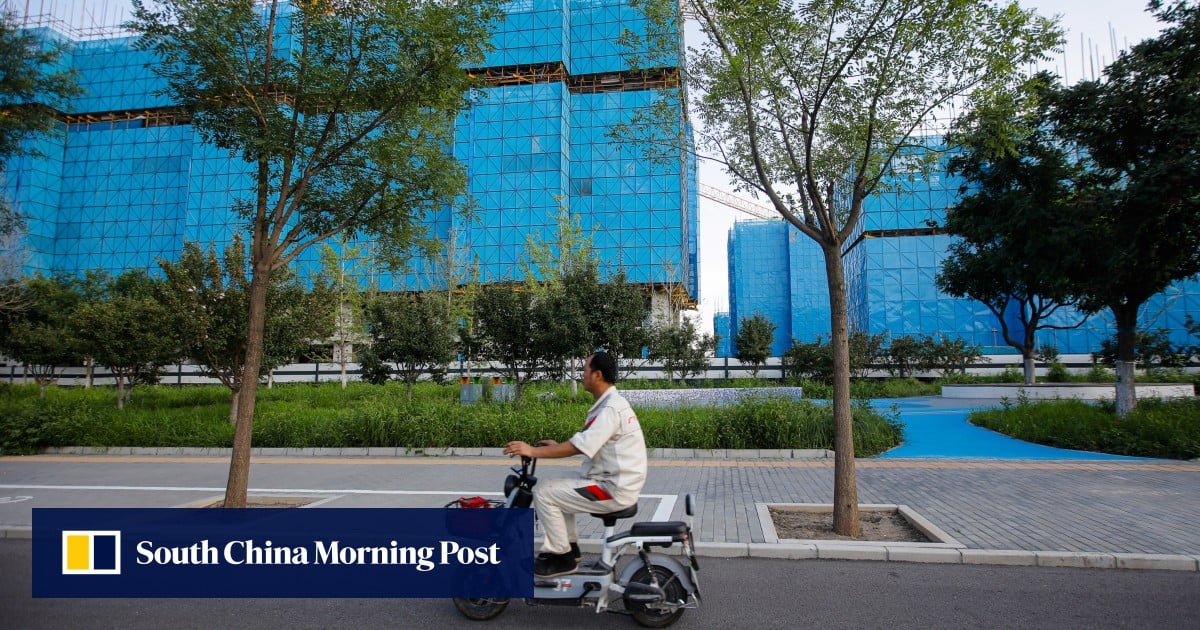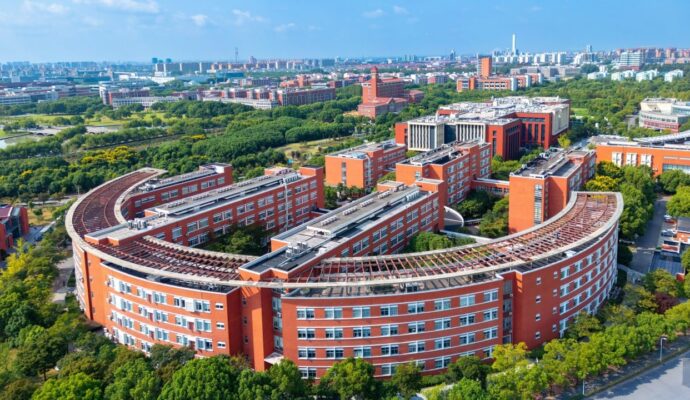
China’s economic recovery continued to struggle across the board in July as the property crisis, which was once a major driver of the economy, deepened and dragged down overall growth.
Property investment fell by 8.5 per cent, year on year, from January to July, after dropping 7.9 per cent in the first half of the year, the National Bureau of Statistics (NBS) said on Tuesday. This marked the lowest growth rate for property investment this year.
Property accounts for more than one-fifth of all fixed-asset investment and contributes around 14 per cent to economic growth.
The property market is now experiencing an adjustment period and it is going to be challenging for [property business] to operate
“The property market is now experiencing an adjustment period and it is going to be challenging for [property business] to operate in the short term. This is especially true for those leading property enterprises, where debt risks have become apparent and affected market expectations,” said NBS spokesman Fu Linghui.
“But we should see that these problems are only interim, and as policies on the property market are adjusted, the risks will be defused.”
Overall, China’s economic recovery remained uneven last month, with the private sector and industrial output yet to fully rebound.
Private investment fell by 0.5 per cent in the first seven months of the year, compared with a rise of 7.6 per cent seen by state-owned enterprises. In the first half of the year, private investment had fallen by 0.2 per cent.
Advertisement
Industrial production rose by 3.7 per cent in July from a year earlier, but the reading was lower than the expected 4.6 per cent rise predicted by Wind after the gauge had risen by 4.4 per cent in June.
Retail sales rose by 2.5 per cent in July, year on year, down from the expected rise of 5.3 per cent by Wind and down from the 3.1 per cent increase in June.
Elsewhere, the overall urban surveyed jobless rose to 5.3 per cent in July, up from 5.2 per cent in June.
But the NBS said it has stopped publishing the monthly jobless rate breakdowns, including for the 16-24 and 25-59 age groups, citing the need to improve labour statistics. The gauge had continued to set record highs in previous months, rising to 21.3 per cent in June, up from 20.8 per cent in May.
Advertisement
The central bank also cut the seven-day reverse repo rate by 10 basis points to 1.8 per cent, in a sign that Beijing’s policymakers are willing to do more to support the struggling economy.
Advertisement


